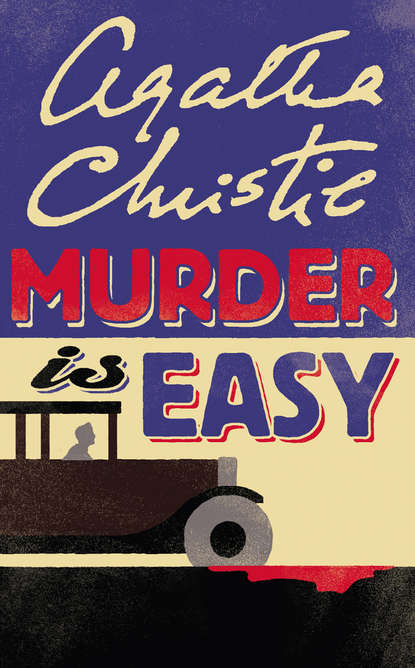По всем вопросам обращайтесь на: info@litportal.ru
(©) 2003-2025.
✖
Murder Is Easy
Автор
Год написания книги
2019
Настройки чтения
Размер шрифта
Высота строк
Поля
‘A drunken ruffian,’ said Lord Whitfield. ‘One of these socialistic, abusive brutes, a good riddance.’
‘And Mrs Rose, the laundress,’ went on Bridget. ‘And little Tommy Pierce—he was a nasty little boy if you like. Oh, of course, and that girl Amy what’s-her-name.’
Her voice changed slightly as she uttered the last name.
‘Amy?’ said Luke.
‘Amy Gibbs. She was housemaid here and then she went to Miss Waynflete. There was an inquest on her.’
‘Why?’
‘Fool of a girl mixed up some bottles in the dark,’ said Lord Whitfield.
‘She took what she thought was cough mixture and it was hat paint,’ explained Bridget.
Luke raised his eyebrows.
‘Somewhat of a tragedy.’
Bridget said:
‘There was some idea of her having done it on purpose. Some row with a young man.’
She spoke slowly—almost reluctantly.
There was a pause. Luke felt instinctively the presence of some unspoken feeling weighing down the atmosphere.
He thought:
‘Amy Gibbs? Yes, that was one of the names old Miss Pinkerton mentioned.’
She had also mentioned a small boy—Tommy someone—of whom she had evidently held a low opinion (this, it seemed, was shared by Bridget!) And yes—he was almost sure—the name Carter had been spoken too.
Rising, he said lightly:
‘Talking like this makes me feel rather ghoulish—as though I dabbled only in graveyards. Marriage customs are interesting too—but rather more difficult to introduce into conversation unconcernedly.’
‘I should imagine that was likely,’ said Bridget with a faint twitch of the lips.
‘Ill-wishing or overlooking, there’s another interesting subject,’ went on Luke with a would-be show of enthusiasm. ‘You often get that in these old-world places. Know of any gossip of that kind here?’
Lord Whitfield slowly shook his head. Bridget Conway said:
‘We shouldn’t be likely to hear of things like that—’
Luke took it up almost before she finished speaking.
‘No doubt about it, I’ve got to move in lower social spheres to get what I want. I’ll be off to the vicarage first and see what I can get there. After that perhaps a visit to the—Seven Stars, did you say? And what about the small boy of unpleasant habits? Did he leave any sorrowing relatives?’
‘Mrs Pierce keeps a tobacco and paper shop in High Street.’
‘That,’ said Luke, ‘is nothing less than providential. Well, I’ll be on my way.’
With a swift graceful movement Bridget moved from the window.
‘I think,’ she said, ‘I’ll come with you, if you don’t mind.’
‘Of course not.’
He said it as heartily as possible, but he wondered if she had noticed that, just for a moment, he had been taken aback.
It would have been easier for him to handle an elderly antiquarian clergyman without an alert discerning intelligence by his side.
‘Oh well,’ he thought to himself. ‘It’s up to me to do my stuff convincingly.’
Bridget said:
‘Will you just wait, Luke, while I change my shoes?’
Luke—the Christian name uttered so easily gave him a queer warm feeling. And yet what else could she have called him? Since she had agreed to Jimmy’s scheme of cousinship she could hardly call him Mr Fitzwilliam. He thought suddenly and uneasily, ‘What does she think of it all? In God’s name what does she think?’
Queer that that had not worried him beforehand. Jimmy’s cousin had just been a convenient abstraction—a lay figure. He had hardly visualized her, just accepted his friend’s dictum that ‘Bridget would be all right.’
He had thought of her—if he had thought of her at all—as a little blonde secretary person—astute enough to have captured a rich man’s fancy.
Instead she had force, brains, a cool clear intelligence and he had no idea what she was thinking of him. He thought: She’s not an easy person to deceive.
‘I’m ready now.’
She had joined him so silently that he had not heard her approach. She wore no hat, and there was no net on her hair. As they stepped out from the house the wind, sweeping round the corner of the castellated monstrosity, caught her long black hair and whipped it into a sudden frenzy round her face.
She said smiling:
‘You need me to show you the way.’
‘It’s very kind of you,’ he answered punctiliously.
And wondered if he had imagined a sudden swiftly passing ironic smile.
Looking back at the battlements behind him, he said irritably:
‘What an abomination! Couldn’t anyone stop him?’
Bridget answered: ‘An Englishman’s house is his castle—literally so in Gordon’s case! He adores it.’
Conscious that the remark was in bad taste, yet unable to control his tongue, he said:
‘It’s your old home, isn’t it? Do you “adore” to see it the way it is now?’

















